Wolfram Summer School 2017
Background:
To be able to keep up with technological advances, there is an increased need for students from all disciplines and backgrounds to develop strong computational, communication and critical thinking skills. Students already have a full load of career specific courses, and there is little room to add courses in the curriculum that solely focus on computation, communication, critical thinking skills. For this reason, I recognize that as an instructor I have the ability and responsibility to change my instructional delivery method to encompass strategies that provide students with a strong foundation to help them develop these high-demand skills.
Motivation:
Developing these skills is important for all students, but my emphasis is on helping the underrepresented student population and those with non-traditional backgrounds. These students, traditionally face many challenges that already puts them at a disadvantage in succeeding in higher education. My hope is that by using the Wolfram Language in the classroom, I can help students overcome math and technological phobia by giving them a tool to help them visualize and contextualize the meaning of the work we do in the classroom and its relevance to the real world.
Summer Project:
Working on this project allowed me to become acquainted with the basic functionality of the Wolfram language and I was able to develop four lessons to use in my introductory statistics class. Wolfram's friendly and interactive interface will allow me to focus more on the application of important concepts in everyday situations, and there will be less emphasis on procedural calculations. I anticipate students' critical thinking abilities will improve as well as their interest in computing tools. In addition to creating new course materials, I was able to meet and to work closely with other educators who share similar interests. The level of support I received from my mentor, staff, and other peers helped me feel part of the community, and I hope I can create that same safe learning environment for my students.
Lessons Topics: Each lesson description is accompanied by selected screenshots taken from their respective notebooks.
1. Random Sampling: we review simple random, stratified, cluster, and systematic sampling. Some of the examples include the use of Wolfram's natural language to obtain geographical and historical data for the sampling exercises.
Simple Random Sampling 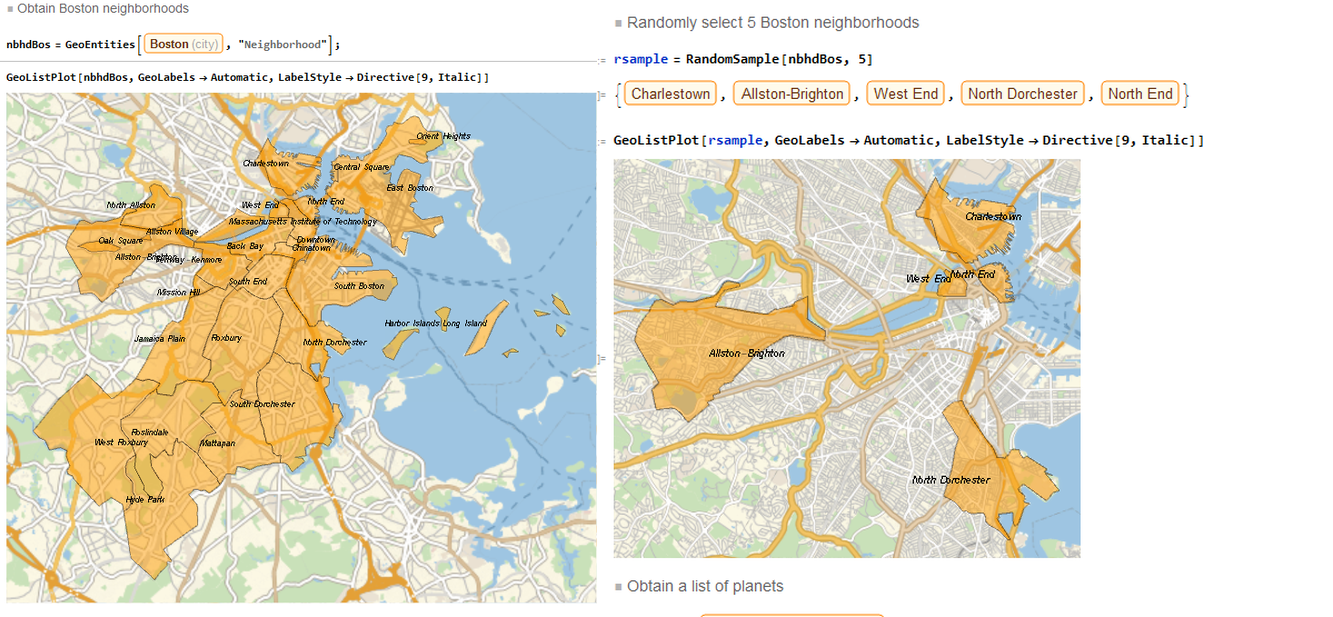
Stratified Sampling
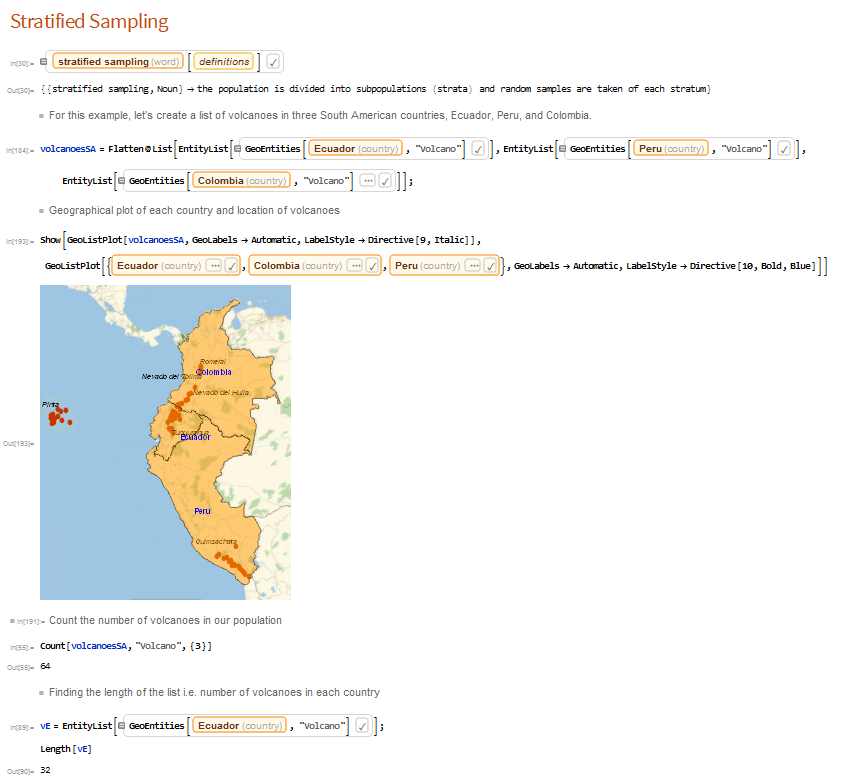
Cluster Sampling
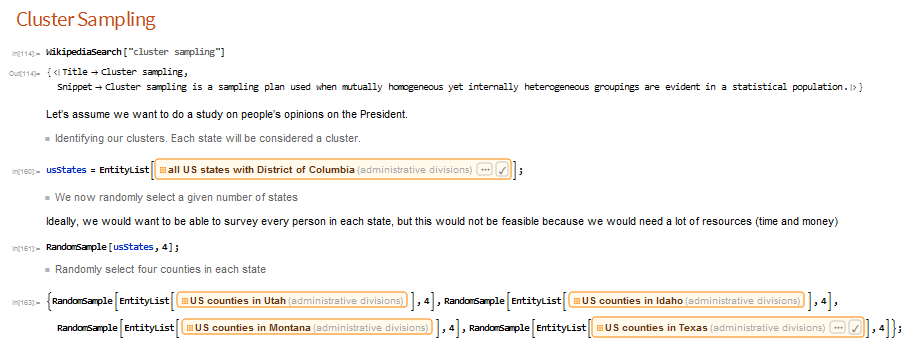
Systematic Sampling
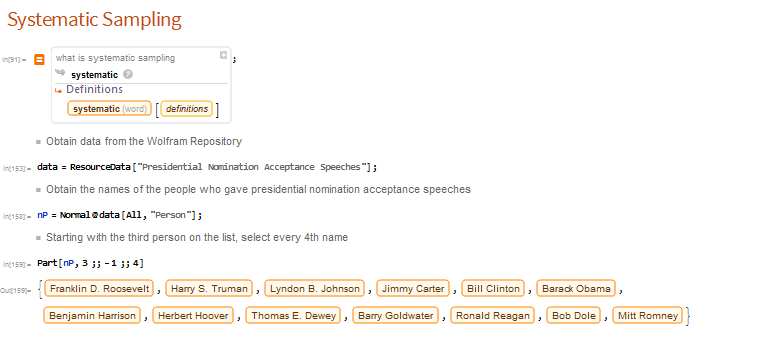
2. Correlation: This notebook makes use data obtained in the Wolfram repository and analyzes data from an anorexia treatment center for young females. A demonstration is embedded in the notebook, and it used to explore correlation and the effects of influential points. Correlation Hypothesis testing is also discussed.
Correlation

Correlation calculation

Hypothesis Test

3. Linear Regression: This is a continuation of the correlation lesson. The sum of squares is explained and presented in a demonstration that was adapted to use the data presented in the study.
Line of Best Fit
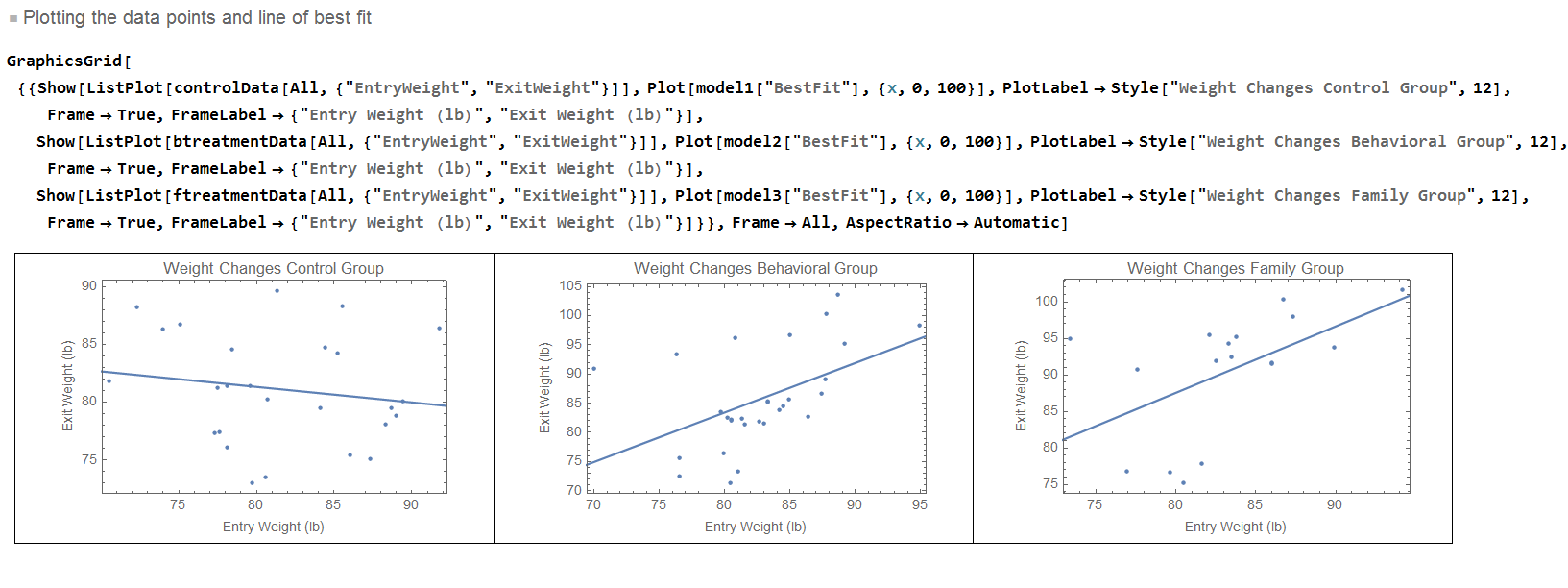
Sum of Squares Demonstration
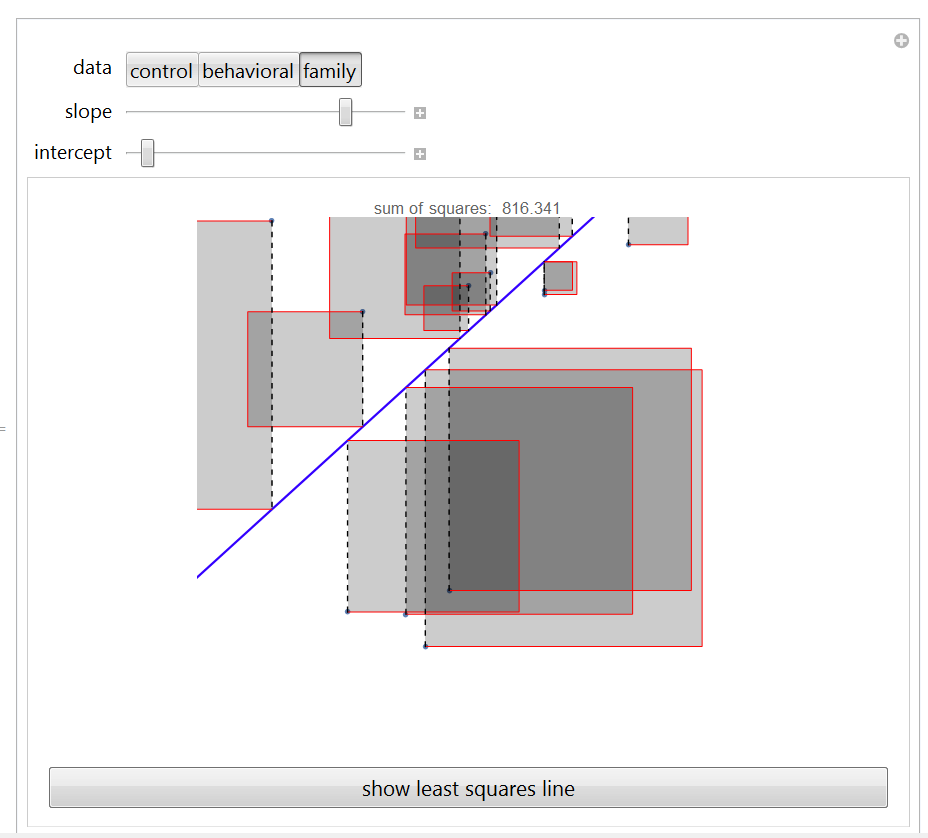
Residual Plot

4. Binomial Distribution: This lesson presents examples of coin tosses and survey data. A demonstration of the outcome number of heads in a coin toss and their corresponding probabilities are used to help students visualize the distribution.
Coin toss experiment
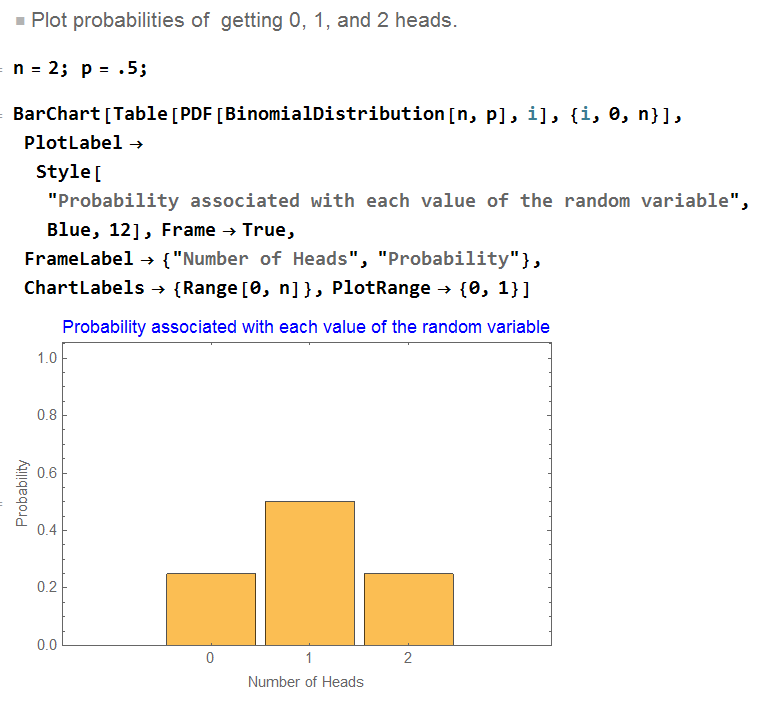
All the lesson notebooks can be found at https://github.com/silvani-v/starthere
References: